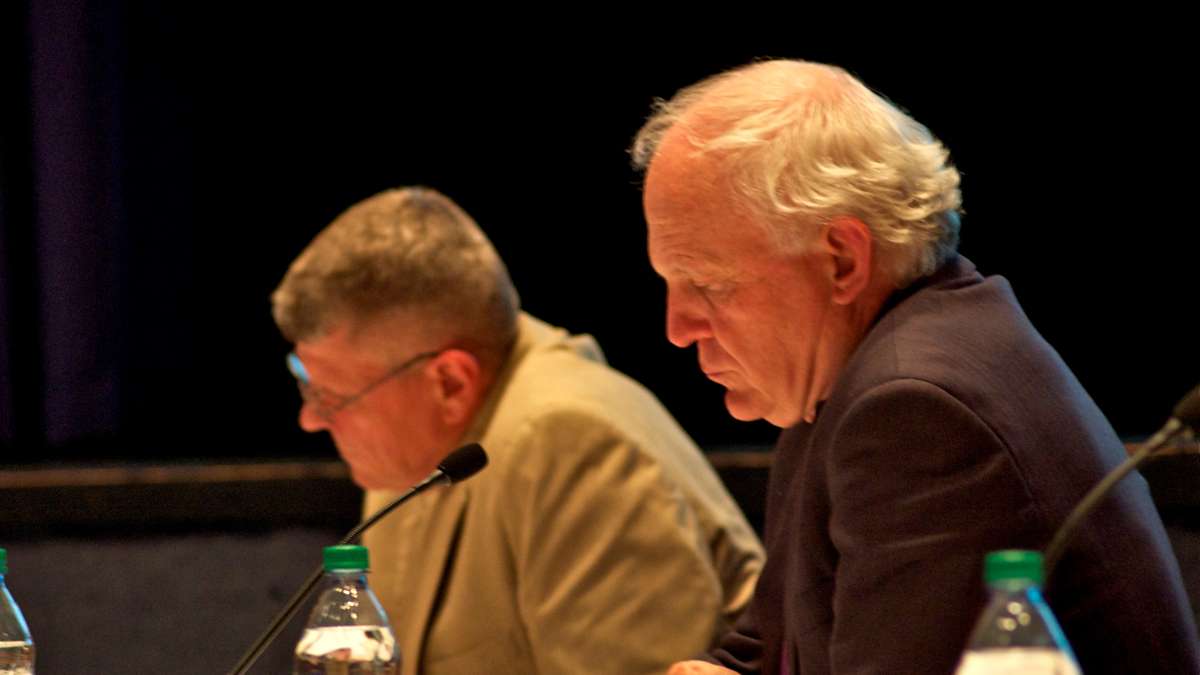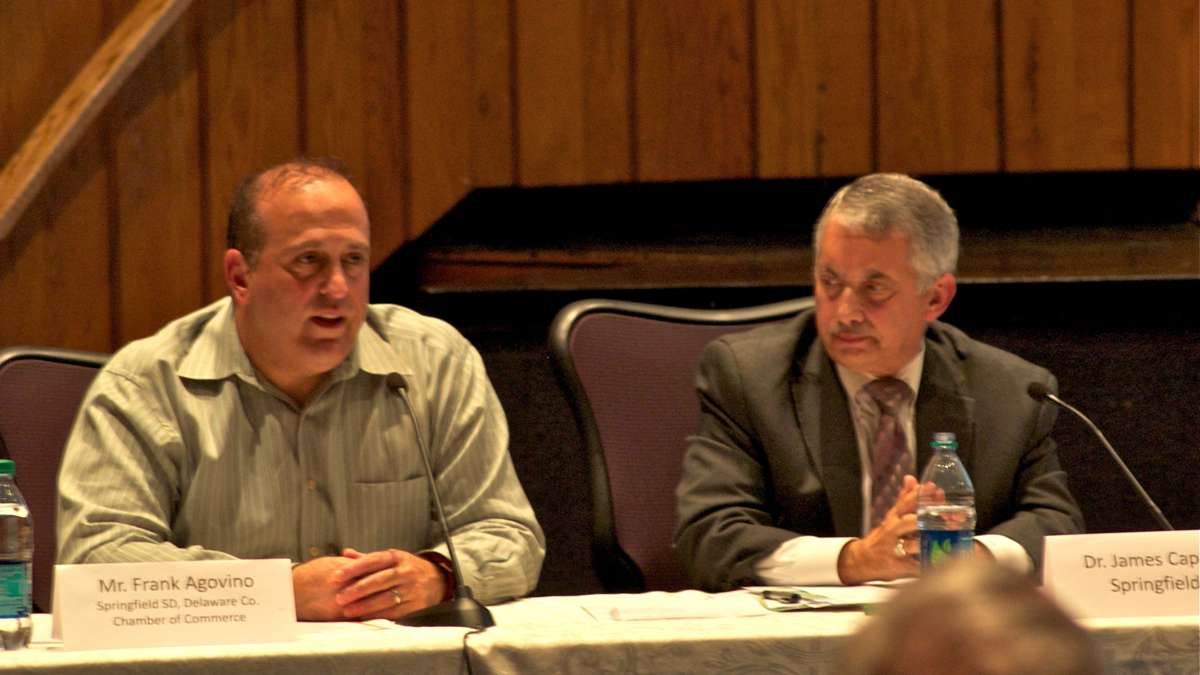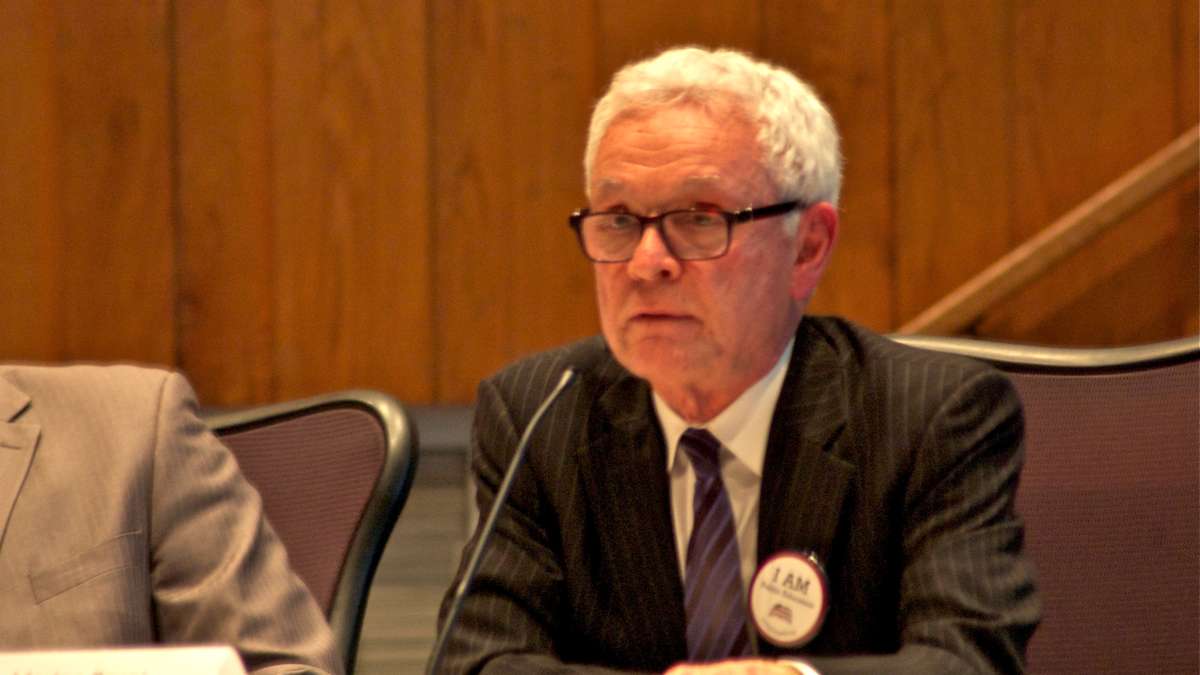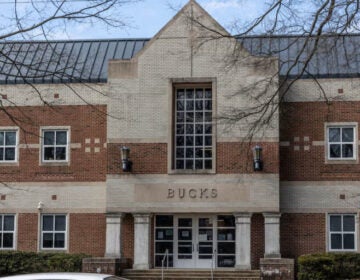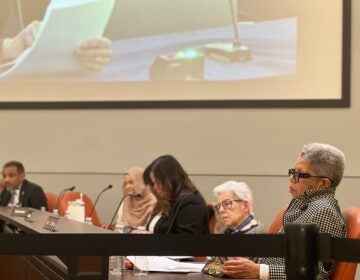Waiting for fair-funding formula, school leaders assess Pa. funding disparities
When it comes to disparities in school funding, Pennsylvania is leading the country.
Community members gathered Wednesday in the Springfield High School auditorium in Delaware County to hear about the imbalance that has wealthier districts getting more state funds than poorer ones.
The panel reflected the disparity, with representatives of districts such as Lower Merion and Phoenixville sitting alongside educators from less wealthy William Penn and Upper Darby.
Springfield Superintendent Jim Capolupo said Pennsylvania ranks 43rd in providing state revenue to public schools.
“Any number that starts with 40, that’s too low,” he said.
To learn more, he visited schools in central Pennsylvania, including districts with 100 percent of its students in the free and reduced-cost lunch program.
“The stories I heard, they don’t have anything left,” Capolupo said. “The cuts are not to the thigh. The cuts are to the heart. Everything has been stripped. I hope that’s not us in the future.”
He noted that Pennsylvania’s state contributions to public education are below the national average, and taxpayer contributions are more than the national average.
Acting superintendent of Lower Merion School District, Wagner Marseille, said his district is frequently used as the comparison to struggling districts.
“When you hear the national and local discourse around school funding, Lower Merion has the unfortunate, dubious distinction as the school that has everything,” he said. “We are very fortunate in Lower Merion for a number of reasons, but our ZIP code does us very, very well.”
He said wealthier districts need to be part of the conversation.
“Districts like ours, who are very fortunate, need to stand up alongside and argue for not just an economic reason but for a moral reason,” he said. “We need to be, not in the background, but in the foreground, standing next to our colleagues because what happens outside these borders impacts what happens inside.”
Striving for a more level playing feld
Joe Bruni, superintendent of the William Penn School District, said although the state has standardized curriculum and testing, it has not standardized school funding.
“You’ll never get equity in the state, even with a funding formula,” he said. “We will never level that playing field with Lower Merion. It’s impossible, but we want to at least be able to provide some services.”
He said taxpayers are overburdened, paying high taxes in the state but having low property values.
“If William Penn is a failing school district, Pennsylvania is a failing state,” he said, referring to the fact that the district is classified as failing.
Pennsylvania is one of only three states without a basic education funding formula. Without a formula, lawmakers rely on a “hold harmless” policy as the funding mechanism, which gives districts the same amount they received the previous year, regardless of any enrollment changes.
Several of the panelists noted that the national average of the cost per inmate is more than the cost per student, and flipping those around could be a place to start.
“If we start investing in children, probably send less to prison,” said Rick Dunlap, superintendent of Upper Darby School District.
He noted one reason for a fair funding formula is the School Performance Profile, the state’s ratings system used to measure the academic progress of every public school. He cited their drop in SPP scores corresponding to less state aid and cuts that impacted student achievement, cuts they’ve recently started to restore.
“We’re getting to that level of accountability that the state has on us, but the funding doesn’t support that evaluation system,” he said.
Phoenixville School District is the fastest-growing district in Chester County, according to Stan Johnson, executive director of operations for the district. A recent Washington Post article listed their high school as the seventh most challenging school in the state.
Johnson is concerned about depending on Harrisburg to solve problems, since “Harrisburg doesn’t have a good record and its tendency of one-size-fits-all.”
Others agree state dollars are not going to cure all issues, but will provide additional resources and help improve student achievement.
These community forums have been held around the state and hosted by Education Voters of Pennsylvania, the Delaware County Schools Boards Legislative Council and the Keystone State Education Coalition.
The Basic Education Funding Commission — the panel tasked with creating the state’s new education funding forum — must make its recommendation to the Legislature by June.
WHYY is your source for fact-based, in-depth journalism and information. As a nonprofit organization, we rely on financial support from readers like you. Please give today.


